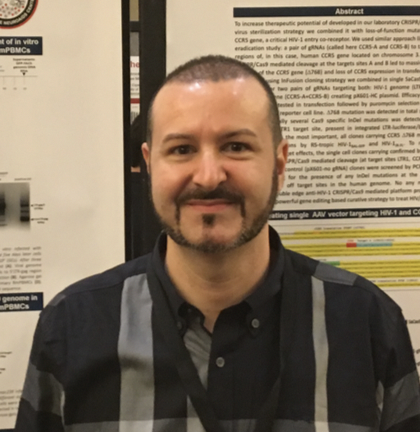
PHILADELPHIA (January 23, 2019) — Fox Chase Cancer Center researchers have found that inhibiting an enzyme critical to cancer cell repair and proliferation may represent a new potential strategy for treating melanoma. Their paper, entitled, “Thymine DNA glycosylase as a novel target for melanoma,” appears in the journal Oncogene.

“Melanoma is classified as a ‘recalcitrant cancer’ by the National Cancer Institute because it can be difficult to treat in its advanced stages due to drug resistance,” said Alfonso Bellacosa, MD, PhD, a professor of cancer epigenetics at Fox Chase, and senior author of the study. “Until check-point inhibitor immunotherapy became available, we had seen little advancement in therapeutic approaches, and new targets are urgently needed.” Leading authors of the study are Pietro Mancuso PhD and Rossella Tricarico PhD.

The researchers, which included Bellacosa’s lab and the cancer biology lab headed by Tim J. Yen, PhD, as well as national and international collaborators, posited that melanoma cells could be destroyed by reducing the levels or activity of the DNA repair enzyme called thymine DNA glycosylase (TDG). This DNA repair enzyme is unique, because it safeguards both the genome and the epigenome, and thus could play a dual role in promoting growth of the cancer cells.
Using TDG knockdown techniques, they learned that inhibiting the enzyme’s production causes existing human melanoma cells to die and prevents cancer cells from forming tumors introduced into mice, thus demonstrating impediment of tumor growth. Importantly, normal melanocytes — the cells that produce skin pigment — are minimally affected by TDG knockdown, which suggests that this new melanoma therapy could spare normal cells. The team also identified first-generation TDG inhibitors and chronicled their anti-cancer activity.
“These findings suggest that TDG may provide critical functions specific to cancer cells that make it highly suitable as an antimelanoma drug target,” Bellacosa said. “By potentially disrupting both DNA repair and the epigenetic state, targeting TDG may represent a completely new approach to melanoma therapy.” Efforts are ongoing to identify potent inhibitors of TDG.
Each year, around 91,270 new melanoma cases are diagnosed in the U.S. Melanoma causes about 9,320 deaths each year. While the majority of cases are successfully treated with surgical removal of the primary tumor, the metastatic form of the disease has poor prognosis because it is highly resistant to therapy.
This research was supported by grants CA06927, CA78412 and CA191956 from the National Cancer Institute, an agency within the National Institutes of Health. Philanthropic funding was also provided by John and Robin Spurlino, the Edwards Family, and by Alice M. Hungerford, through the David A. Hungerford Endowed Fund in Basic Chromosome Research, honoring her late husband’s legacy as a renowned scientist and the co-discoverer of the Philadelphia Chromosome.